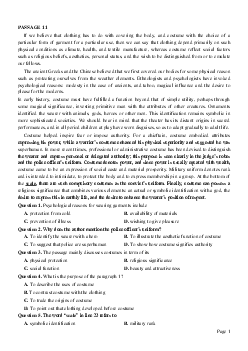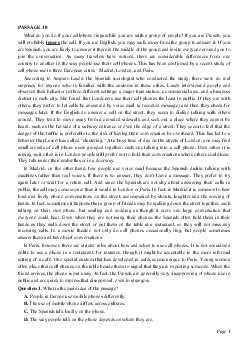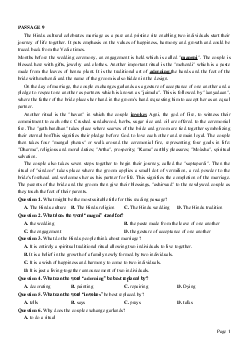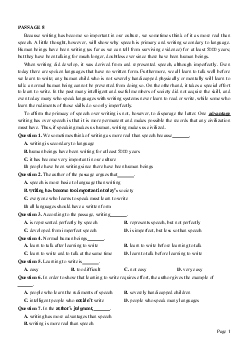
Preview text:
PASSAGE 17
Business dealings are becoming more and more commonplace in Vietnam, as the country's economy is
expanding at an unprecedented rate. In order to gain the respect and favour of any prospective business
partners in the country, it is important to familiarize yourself with practices and etiquette that are integral
to successful commerce. Doing so will communicate not only your familiarity with their way of life, but
also your suitability as a partner and will underline your business acumen.
Regarding business meeting, the first meeting should not discuss business and should be seen only as an
opportunity to get to know your counterpart and cultivate a good working relationship with them. While
placing hands together and bowing your head is the traditional form of greeting in Vietnam, it has been all
but eradicated westernisation of society. As a result, you should always shake the hand of a person you
are meeting for the first time – especially if they are of the same sex. When meeting a female, you should
wait for her to extend her hand first; if she does not, simply nod your head. Follow your new colleague's
lead in all matters. If they shake with both hands (left hand placed upon top of right), do the same.
The next important point is that the exchange of business cards is an important ritual in Vietnamese
culture. Because of this, always make sure you bring a business card to exchange at any meeting, no
matter how small or trivial it may seem. Ideally, this will be printed in both English and Vietnamese and
you should always offer it using both hands. When receiving a card from someone else, accept it with
both hands and study it thoroughly before putting it away to show respect. The translation of all
documents into Vietnamese will demonstrate your regard for your prospective partners and your
preparation in the business world.
Question 1. What does the word “the country” refer to? A. A big city B. A rural area C. Vietnam D. The US
Question 2. How did Vietnamese business people use to greet each other formally?
A. They hugged each other and touched their heads.
B. They shook hands and lowered their bodies.
C. They took off their hats and waved their hands.
D. They placed hands together and bowed their heads.
Question 3. What can best replace the word trivial in the passage? A. very small B. meaningless C. crucial D. unimportant
Question 4. Which of the following aspects is NOT mentioned in the passage? A. Meeting B. Business cards C. Language D. Management
Question 5. Who is probably interested in this passage?
A. Students in administration and business management major
B. Foreign business people coming to Vietnam for the first time
C. Vietnamese teachers of English who want to study abroad
D. Vietnamese traders preparing to invest into foreign markets ĐÁP ÁN 1-C 2-D 3-D 4-C 5-B Page 1




